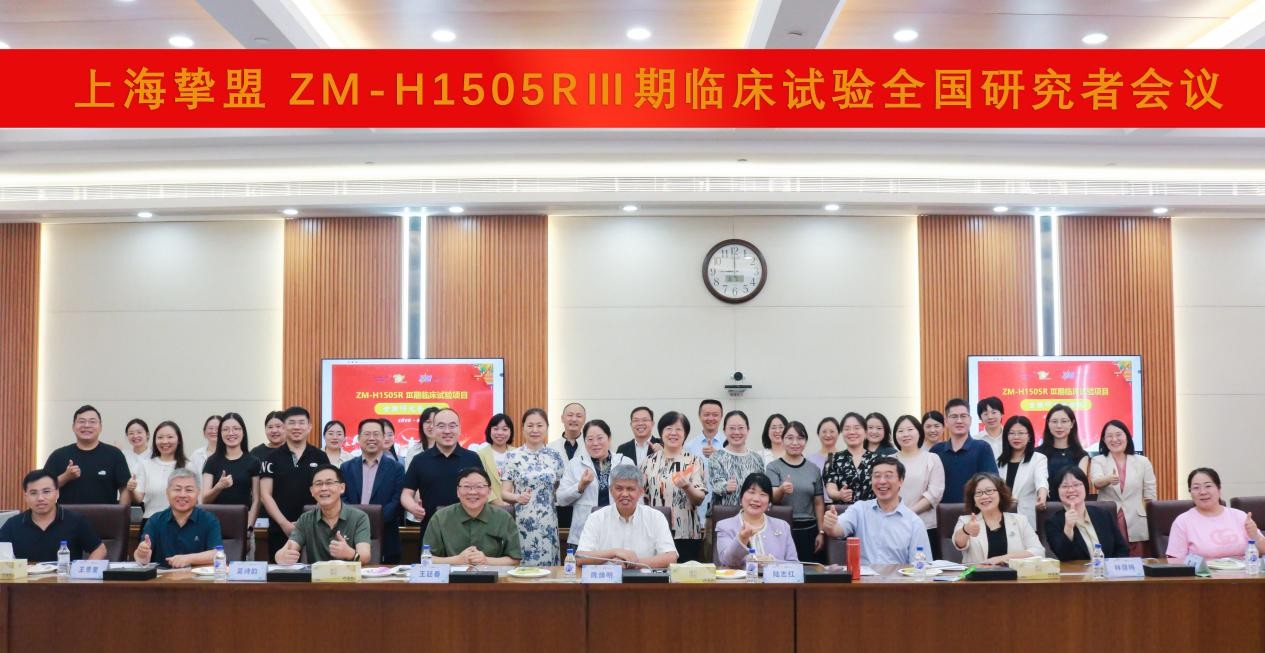Shanghai, August 12, 2025 – Shanghai Zhimeng Biopharma, Inc. ("Zhimeng Biopharma" or the "Company") recently convened the national investigator meeting for the Phase III clinical trial of its self-developed next-generation capsid assembly modulator, ZM-H1505R. The event featured a main offline venue in Changchun supplemented by online video conferences connecting participants across multiple cities including Beijing, Shanghai, Guangzhou, Harbin, Shenyang, Xi'an, Shijiazhuang, Nanjing, Chengdu, and Huizhou. This meeting marks the imminent official launch of the ZM-H1505R Phase III clinical study.
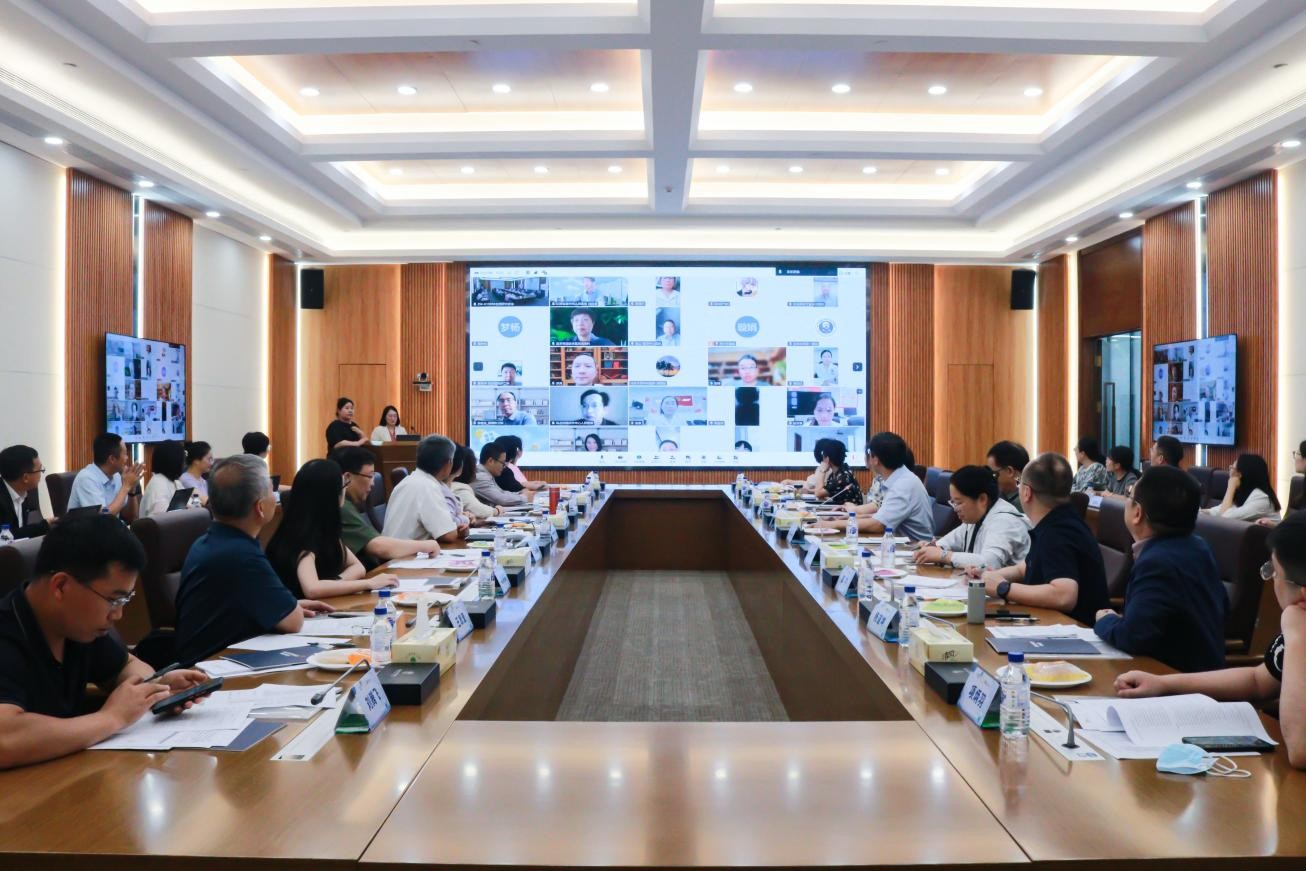
ZM-H1505R, classified as a Category 1 new chemical drug,is developed by Zhimeng Biopharma for chronic hepatitis B (CHB). Professor Niu Junqi, Director of the Hepatology Department at the First Hospital of Jilin University, serves as the Principal Investigator (PI), leading the study in collaboration with nearly 80 top-tier medical centers across China.
At the Changchun venue, key attendees included Professor Niu Junqi, Professor Duan Ying from Beijing Ditan Hospital (Capital Medical University), Chief Physician Zhang Zong from Shandong Public Health Clinical Center, and Chief Physician Dou Qian from the Third Affiliated Hospital of Xinxiang Medical University, alongside experts from 21 research institutions. Representatives from the sponsor, Zhimeng Biopharma, included Chairman Dr. Chen Huanming, CMO Dr. Lu Zhihong, Medical Director Dr. He Bin, Clinical Operations Director Ma Chaoming, and Pharmacovigilance Manager Xiang Danyan. Also present were Dr. Wang Tingchun (Chairman), Xia Qikui (COO), Cheng Jie (Clinical Operations Director) from Boji Pharmaceutical, and Huang Wen (Project Manager) from Guangzhou KingMylab Pharmaceutical Research Co., Ltd.
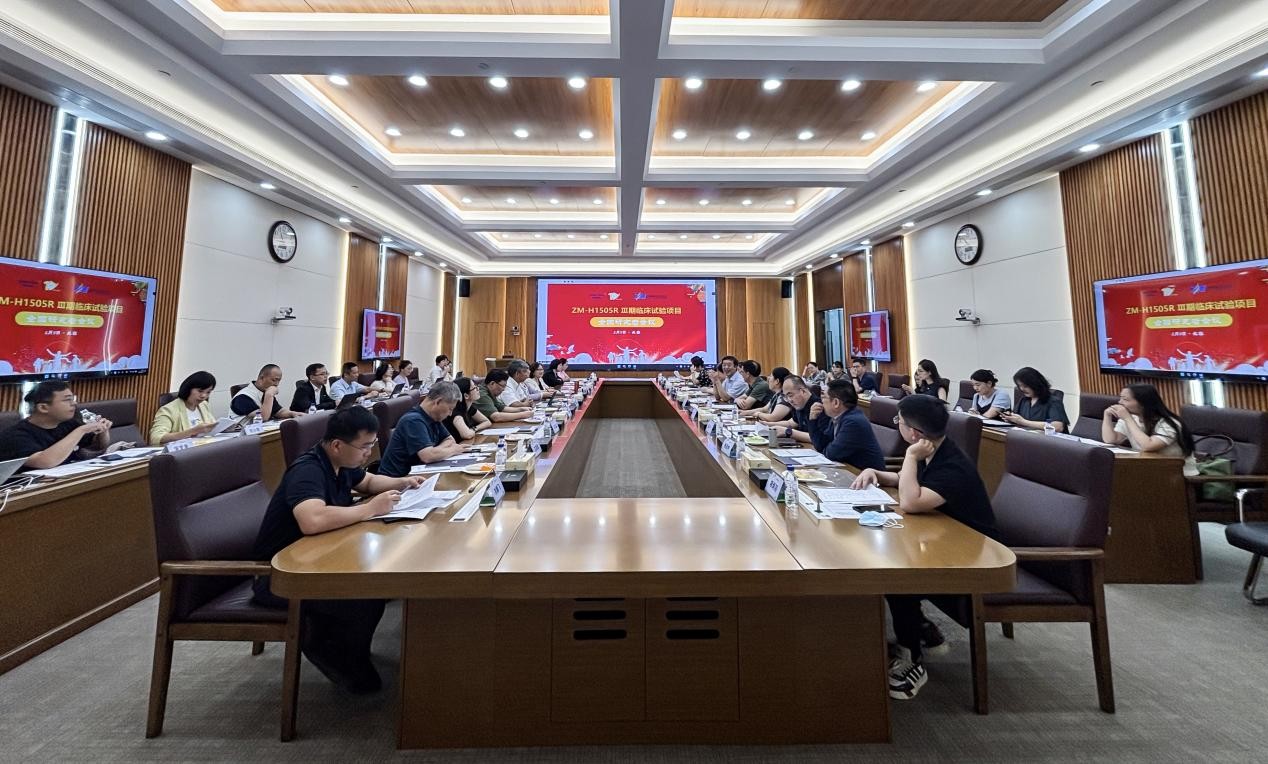
Dr. Chen Huanming, Chairman of Zhimeng Biopharma, highlighted that ZM-H1505R's novel chemical scaffold received it Breakthrough Therapy designation, potentially offering a new path to functional cure for CHB patients. "As a self-developed next-generation core protein inhibitor, ZM-H1505R demonstrated excellent antiviral efficacy and favorable safety in Phase II studies. We are fully committed to supporting and collaborating with all clinical sites. We believe this project will provide new treatment options for patients through our collective efforts," stated Dr. Chen.
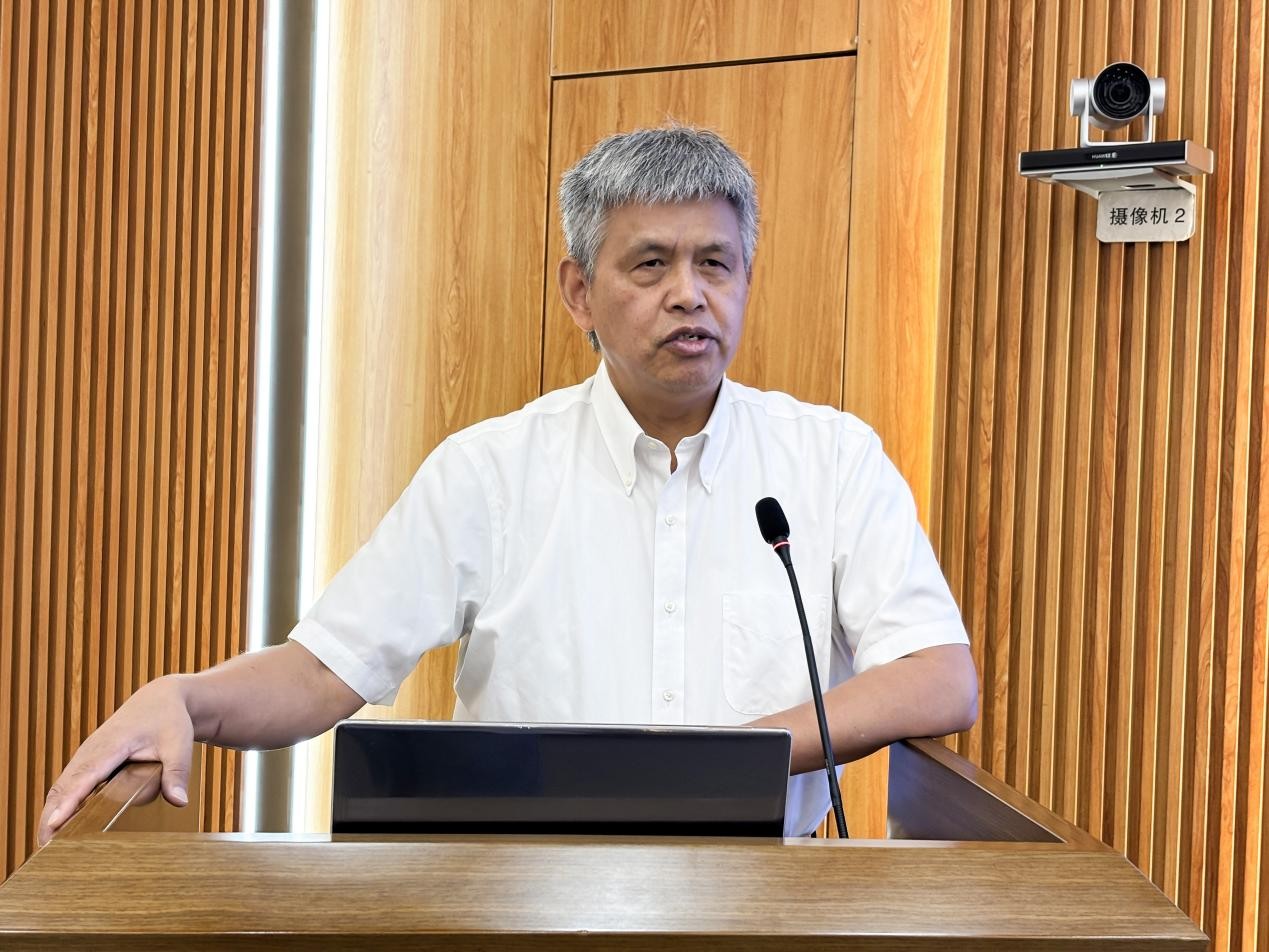
Dr. Wang Tingchun expressed strong anticipation and support for the ZM-H1505R project. "Boji Medical possesses extensive clinical research experience in liver diseases. Following the successful collaboration model established with Xi'an Xintong, we will facilitate efficient coordination between research centers and the sponsor to ensure high-quality and rapid advancement of this clinical study".
Professor Niu Junqi emphasized that China is in a golden era of drug development, noting that ZM-H1505R's research has broken through bottlenecks in targeting this mechanism. "Among over 20 global companies pursuing this target, only Zhimeng Biopharma's candidate has achieved breakthroughs in both safety and efficacy. The ZM-H1505R Phase III trial positions China's original drug research at the global forefront," Professor Niu remarked.
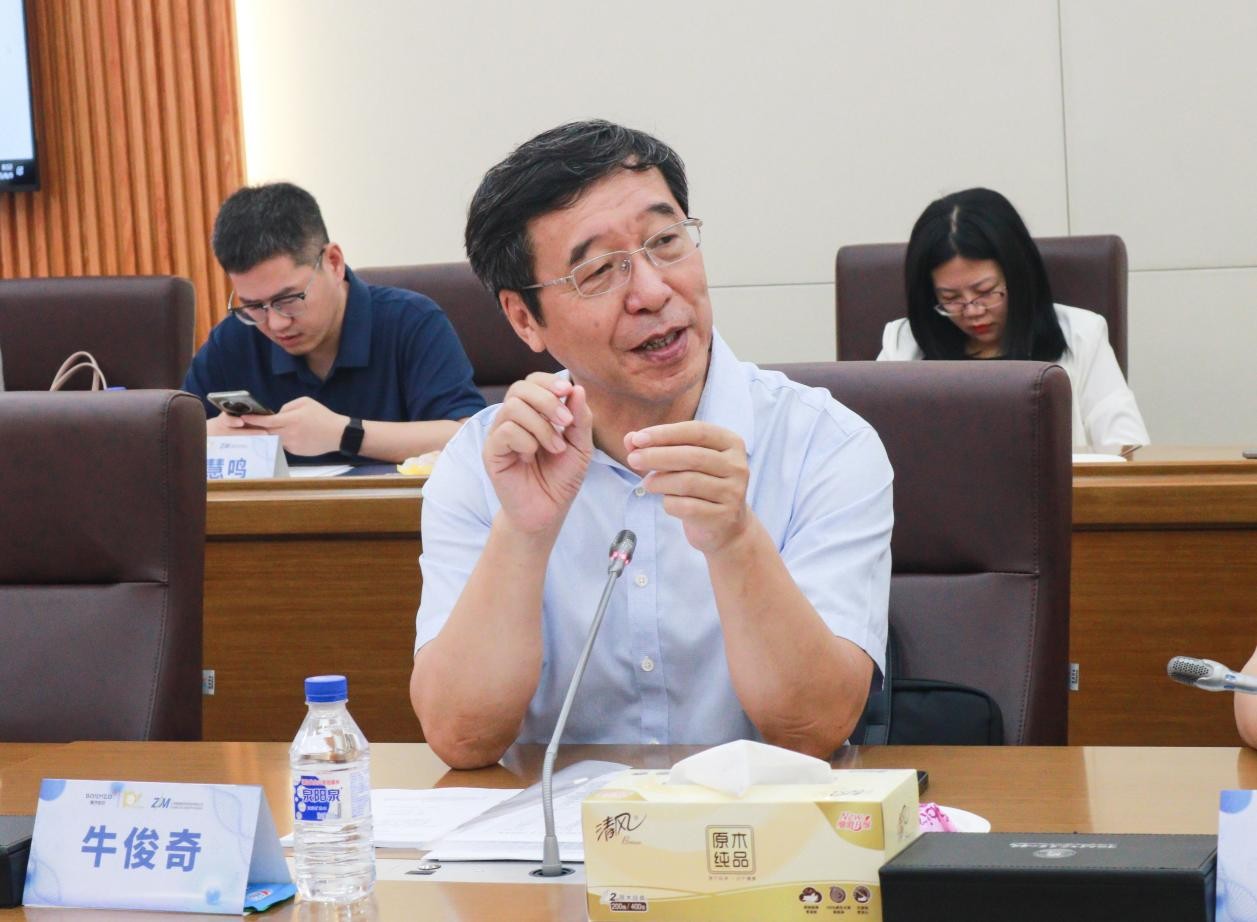
Dr. Lu Zhihong, CMO of Zhimeng Biopharma, analyzed the unmet needs in current CHB treatment: China's diagnosis and treatment rates significantly lag behind WHO's 2030 targets, and approximately 30% of patients respond inadequately to existing drugs. He explained ZM-H1505R's dual mechanism – short-term viral replication suppression and potential long-term clearance of the viral reservoir (cccDNA) – offering a novel pathway towards clinical cure.
Dr. He Bin then detailed the trial design, covering study objectives, endpoints, subject selection, concomitant medications, and inclusion/exclusion criteria. Under Professor Niu's guidance, participating experts engaged in robust discussions, reaching consensus on key issues such as the duration of concomitant medications, enrollment criteria for patients with fatty liver disease, and ethical safeguards for the placebo group.
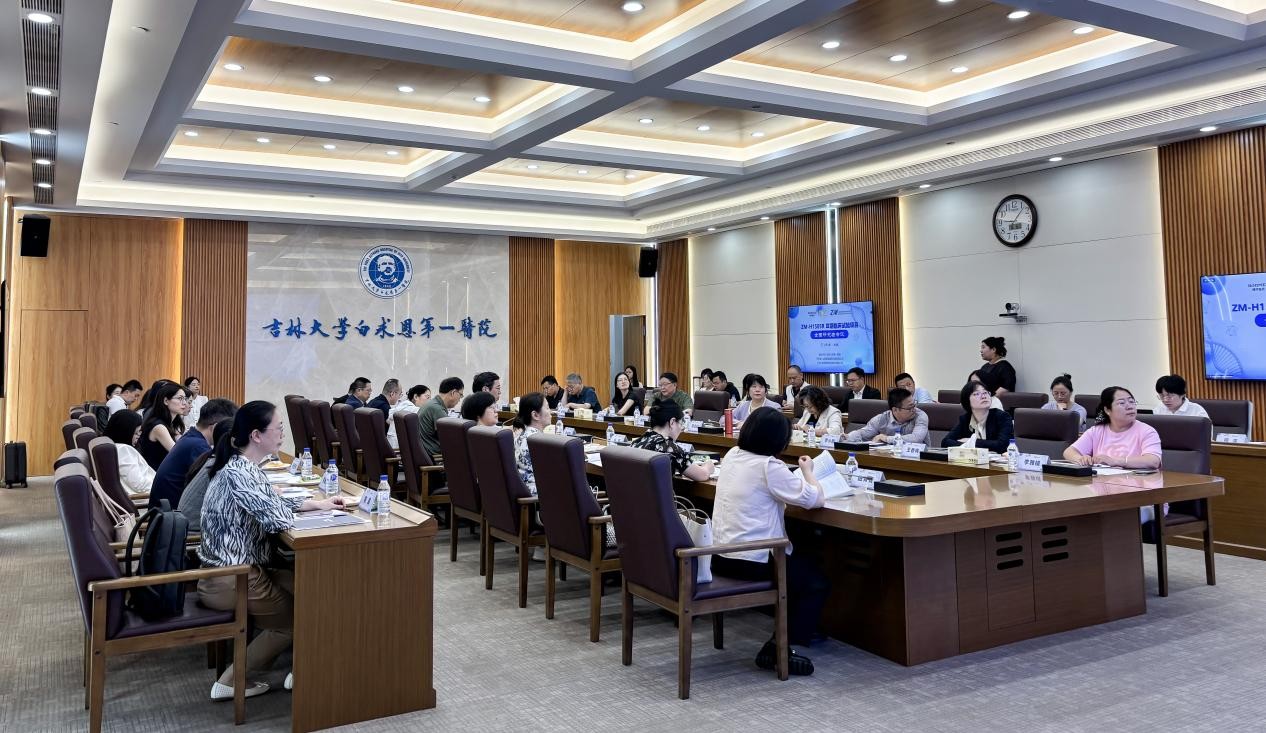
Subsequently, Huang Wen, Manager of the Central Laboratory, systematically outlined the high-sensitivity HBV-DNA testing procedures and the drug resistance monitoring/alert mechanism. Pharmacovigilance Manager Xiang Danyan elaborated on drug safety, emphasizing standardized management procedures for special adverse events like abnormal liver function. Ma Chaoming, Clinical Operations Director of Zhimeng, presented the comprehensive project management plan, setting clear enrollment targets: leveraging nearly 80 centers nationwide, the plan aims to initiate 30 sites in August and complete full activation by October. A three-tier quality control system ("Unified SMO Training + Monthly Monitoring + Real-time Investigator Q&A Groups") will ensure efficient project execution.
In closing remarks, Dr. Chen Huanming reiterated his gratitude. He emotionally recalled, "ZM-H1505R's journey spans 21 years since its R&D inception in 2004. Today's in-depth expert discussions bolster our confidence. We expect it to excel in its primary mechanism of viral suppression and hope its secondary mechanism targeting cccDNA depletion will bring breakthroughs in functional cure. Thank you to all investigators. Together, we strive to make ZM-H1505R the world's first approved core protein inhibitor."
Professor Niu Junqi concluded the meeting, stating that the discussions clarified critical trial execution details. "The protocol adheres to international standards while addressing practical clinical needs, particularly achieving consensus on enrollment criteria for patients with comorbidities and AE management procedures. We believe collaborative efforts will drive efficient progress, providing new evidence-based solutions for CHB treatment." He further launched the "Ethics Mutual Recognition Initiative for Liver Disease Clinical Trials": participating centers can waive redundant ethics reviews by relying on the lead site's approval, significantly shortening startup timelines. With 43 centers already approved under this model, it sets a new paradigm for multicenter clinical research in China.
